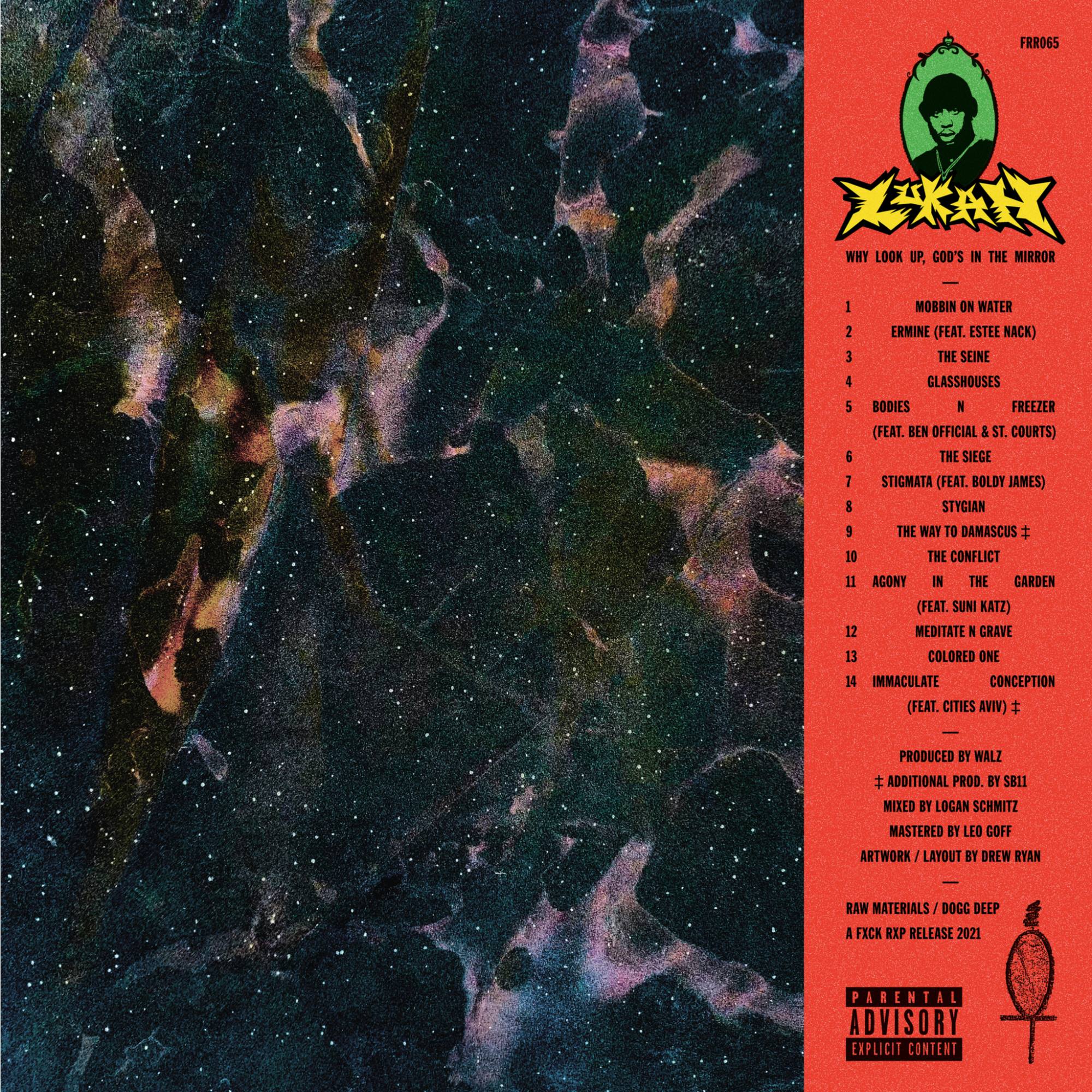Hailing from Memphis, Lukah is the sort of rapper who doesn’t see why a region need sound one certain way. Despite expressing limitless respect for the likes of Young Dolph and Key Glock (and those that came before), his music delves into worlds often very removed from the sounds associated with his hometown. His first album of 2021, the underrated When The Black Hand Touches You, was replete with sinisterly twisted soul samples and moody gospel organ.
Ever restless, his second album this year, Why Look Up, God’s in the Mirror, pulls in yet another direction. It occupies a space unique in the current hip hop landscape, arguably sounding subtly unlike most anything before it, especially given where it hails from. It simultaneously exists in a similar zone to the current grimy New York revivalism of Griselda and nods heavily towards the sweat-drenched, Southern-fried sounds of his native Memphis. It’s the gnarled, knotty, moody cousin to any artist from the area you’ve familiarized yourself with. It’s decidedly minimal, spare and lean, its beats crafted to come straight for the jugular.
Opener “Mobbin on Water” is the perfect introduction to this sonic zone, boasting a distant, intermittent, rousingly out of key piano loop and thudding, ominous drums. Lukah himself enters with a bone to pick, immediately taking to task the seemingly ever-resounding lack of respect for Southern rappers, all while thumping his chest: “rap with confidence on my shit – don’t know what modest is.” Yet, it’s a quick line, tossed out with nearly dismissive nonchalance that defines much of what’s at play here: “Don’t need to polish this.”
He’s right. The bruised, eerie atmosphere of Why Look Up serves Lukah well, the rapper boiling down his brew to purely the essential elements – all business with no time to play. For Lukah, the grim nature of the beats – not entirely removed from an entirely paired back Organized Noize circa ATLiens, albeit on a bad trip – is not only fitting, but necessitated. He uses Why Look Up as a self-run therapy session, spitting bile and trauma out of every corner of his soul. Speaking to Passion of the Weiss, he put it simply: “The story was releasing anger. It’s a lot of anger built up inside of me and I just wanted to release this aggression and be happy for once.”
He also briefly illuminated an even deeper truth of Why Look Up: it’s a dash away from sadness. In Lukah’s harsh world, there’s simply no time for self pity or emotions of the sort, and while, deep down, he acknowledges that there’s surely a reservoir of fatigued sorrow, he absolutely refuses to face it, erecting his makeshift temple of pointed anger (not to mention brutality, such as on the genuinely harrowing “Agony in the Garden”) as a sort of defense against the genuine emotions at play. There’s no better presentation of this than the grueling “Colored One”: “Hide the heartaches and the shame, and that shit hurts to suppress / They say we all free, but be real, n***as are still oppressed / … I can attest: won’t understand the anguish, so ain’t no fucking need to confess.”
When he utters harsh truths such as “The poor and the children are starving and have to be without / but they won’t make a trip to the hood, they take the scenic route,” on “Glasshouses”, they’re tossed off rapidly, nearly asides. It’s as if he simply can’t allow himself to dwell on these thoughts, lest they weigh him down completely into the murky waters he’s ventured into on Why Look Up. The guests all get in the mood, operating from a similar zone, with current favorite Boldy James putting in a particularly memorable, grim turn on “Stigmata”
The title itself is telling: for an album so filled with agony and defensive rage, Why Look Up, God’s in the Mirror would seem an unusual choice. Yet, it speaks of the world Lukah hopes to help the listener reach, to reach himself. As he stated, he hopes that by spilling out every ounce of anger in his heart he’ll reach some sort of peace. Speaking for neglected communities in which resentment inevitably builds, day by day, year by year, and in which aggression is nearly an obligation for survival, there’s often no room for anything resembling hope. It may be hard to listen to at times, and it’s certainly not pretty, but Why Look Up exists firmly in this world, prideful notions masking a deep, lifelong fatigue. However, what it also does, even if ever so slightly, is dare to peek beyond that reality – towards a different future. It’s a wary, cautious step, and one that couldn’t feel more necessary.

